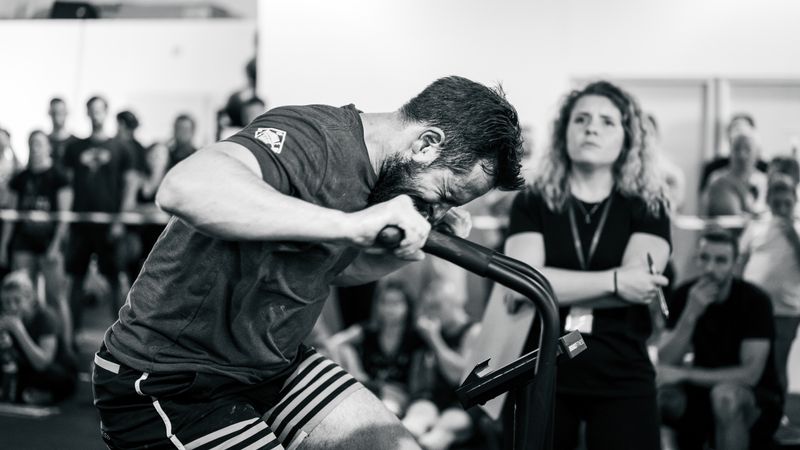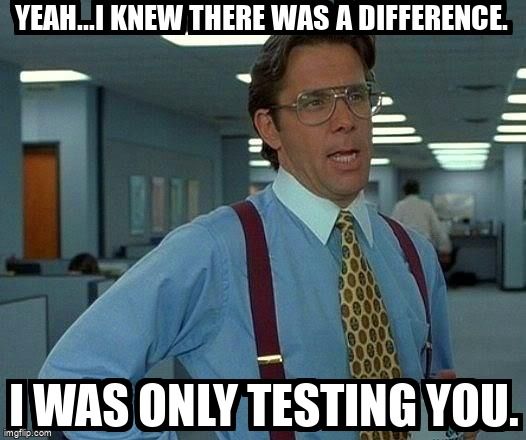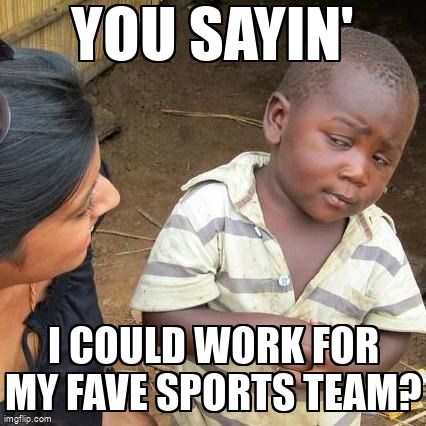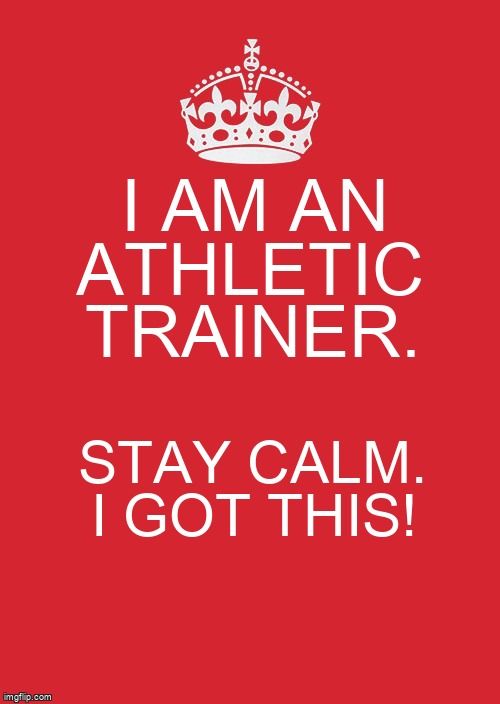Athletic trainer?
Oh, you mean a fitness trainer who works with athletes?
 Photo by Bastien Plu on Unsplash
Photo by Bastien Plu on UnsplashWhile both can work with athletes, there is a big difference in education, skillset, and job duties.
Where a fitness trainer needs only a certification, the athletic trainer is recognized as an allied health care professional with education and clinical training following the medical model.

So, they're a physical therapist?
Not quite! Athletic trainers work with athletes on a regular basis. A physical therapist only diagnoses and treats patients who are injured and often works regular hours in a hospital or clinical setting. 
The Actual Job
An athletic trainer (aka "AT") is a highly qualified, multi-skilled health care professional providing services to patients and athletes in collaboration with a physician.

Injury and illness prevention
Examination, assessment, and diagnosis
Immediate and emergency care
Therapeutic intervention (i.e., rehabilitation reconditioning)
Health care administration and professional responsibility
Leadership, strategic planning, goal setting, and human resources
Quiz
Athletic trainers can only provide treatments such as ankle taping to athletes.
Where Can You Work As An Athletic Trainer?
Educational settings (e.g., colleges, universities, elementary, and secondary schools)
Hospitals, clinics, and physician's offices
Fitness centers
Professional sports teams
Youth leagues (e.g., municipal and independently owned)
Occupational health departments in commercial settings (e.g., manufacturing, distribution, etc.)
Police and fire departments
Performing arts (e.g., professional and collegiate level dance and music)

Quiz
Which location(s) would hire an AT?
Let's Talk Money...
The average salary is...
 In the US about $48,420 or $23.28/hour.
In the US about $48,420 or $23.28/hour.
 In Canada about $43,177 or $20.76/hour.
In Canada about $43,177 or $20.76/hour.
You'll Love It If You...

Enjoy a different day-to-day routine.
Have a positive attitude towards changes in your environment.
Are confident and compassionate in speaking with coaches, parents, and athletes.
Not afraid of conflict in decision-making skills.
The Bottom Line?
You'll do well as an athletic trainer if you're willing to be all in and do what it takes for your athletes and patients.

Look For Another Career Path If...
You may struggle as an AT if:
Straightforward communication isn't your strong point.
You're uncomfortable being a mentor and advisor to athletes.
You can be bossy or arrogant.
Working long hours and traveling for work isn't for you.

How Do I Become An Athletic Trainer?
Earn an undergraduate degree in athletic training or exercise science.
Graduate with a master’s degree from an accredited athletic training education program.
Pass a comprehensive test administered by the Board of Certification (BOC).
After certification, meet ongoing continuing education requirements to stay certified.

Take Action
Does it sound like becoming an AT could be a good path for you?

If it does, then:
Your feedback matters to us.
This Byte helped me better understand the topic.
